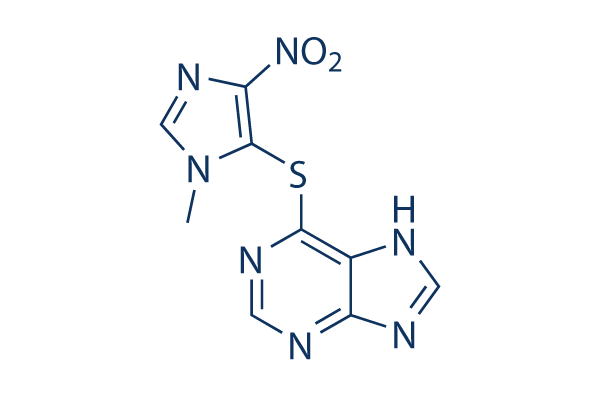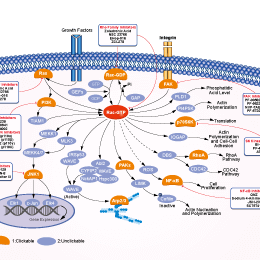
- Bioactive Compounds
- By Signaling Pathways
- PI3K/Akt/mTOR
- Epigenetics
- Methylation
- Immunology & Inflammation
- Protein Tyrosine Kinase
- Angiogenesis
- Apoptosis
- Autophagy
- ER stress & UPR
- JAK/STAT
- MAPK
- Cytoskeletal Signaling
- Cell Cycle
- TGF-beta/Smad
- DNA Damage/DNA Repair
- Compound Libraries
- Popular Compound Libraries
- Customize Library
- Clinical and FDA-approved Related
- Bioactive Compound Libraries
- Inhibitor Related
- Natural Product Related
- Metabolism Related
- Cell Death Related
- By Signaling Pathway
- By Disease
- Anti-infection and Antiviral Related
- Neuronal and Immunology Related
- Fragment and Covalent Related
- FDA-approved Drug Library
- FDA-approved & Passed Phase I Drug Library
- Preclinical/Clinical Compound Library
- Bioactive Compound Library-I
- Bioactive Compound Library-Ⅱ
- Kinase Inhibitor Library
- Express-Pick Library
- Natural Product Library
- Human Endogenous Metabolite Compound Library
- Alkaloid Compound LibraryNew
- Angiogenesis Related compound Library
- Anti-Aging Compound Library
- Anti-alzheimer Disease Compound Library
- Antibiotics compound Library
- Anti-cancer Compound Library
- Anti-cancer Compound Library-Ⅱ
- Anti-cancer Metabolism Compound Library
- Anti-Cardiovascular Disease Compound Library
- Anti-diabetic Compound Library
- Anti-infection Compound Library
- Antioxidant Compound Library
- Anti-parasitic Compound Library
- Antiviral Compound Library
- Apoptosis Compound Library
- Autophagy Compound Library
- Calcium Channel Blocker LibraryNew
- Cambridge Cancer Compound Library
- Carbohydrate Metabolism Compound LibraryNew
- Cell Cycle compound library
- CNS-Penetrant Compound Library
- Covalent Inhibitor Library
- Cytokine Inhibitor LibraryNew
- Cytoskeletal Signaling Pathway Compound Library
- DNA Damage/DNA Repair compound Library
- Drug-like Compound Library
- Endoplasmic Reticulum Stress Compound Library
- Epigenetics Compound Library
- Exosome Secretion Related Compound LibraryNew
- FDA-approved Anticancer Drug LibraryNew
- Ferroptosis Compound Library
- Flavonoid Compound Library
- Fragment Library
- Glutamine Metabolism Compound Library
- Glycolysis Compound Library
- GPCR Compound Library
- Gut Microbial Metabolite Library
- HIF-1 Signaling Pathway Compound Library
- Highly Selective Inhibitor Library
- Histone modification compound library
- HTS Library for Drug Discovery
- Human Hormone Related Compound LibraryNew
- Human Transcription Factor Compound LibraryNew
- Immunology/Inflammation Compound Library
- Inhibitor Library
- Ion Channel Ligand Library
- JAK/STAT compound library
- Lipid Metabolism Compound LibraryNew
- Macrocyclic Compound Library
- MAPK Inhibitor Library
- Medicine Food Homology Compound Library
- Metabolism Compound Library
- Methylation Compound Library
- Mouse Metabolite Compound LibraryNew
- Natural Organic Compound Library
- Neuronal Signaling Compound Library
- NF-κB Signaling Compound Library
- Nucleoside Analogue Library
- Obesity Compound Library
- Oxidative Stress Compound LibraryNew
- Plant Extract Library
- Phenotypic Screening Library
- PI3K/Akt Inhibitor Library
- Protease Inhibitor Library
- Protein-protein Interaction Inhibitor Library
- Pyroptosis Compound Library
- Small Molecule Immuno-Oncology Compound Library
- Mitochondria-Targeted Compound LibraryNew
- Stem Cell Differentiation Compound LibraryNew
- Stem Cell Signaling Compound Library
- Natural Phenol Compound LibraryNew
- Natural Terpenoid Compound LibraryNew
- TGF-beta/Smad compound library
- Traditional Chinese Medicine Library
- Tyrosine Kinase Inhibitor Library
- Ubiquitination Compound Library
-
Cherry Picking
You can personalize your library with chemicals from within Selleck's inventory. Build the right library for your research endeavors by choosing from compounds in all of our available libraries.
Please contact us at info@selleckchem.com to customize your library.
You could select:
- Antibodies
- Bioreagents
- qPCR
- 2x SYBR Green qPCR Master Mix
- 2x SYBR Green qPCR Master Mix(Low ROX)
- 2x SYBR Green qPCR Master Mix(High ROX)
- Protein Assay
- Protein A/G Magnetic Beads for IP
- Anti-Flag magnetic beads
- Anti-Flag Affinity Gel
- Anti-Myc magnetic beads
- Anti-HA magnetic beads
- Poly DYKDDDDK Tag Peptide lyophilized powder
- Protease Inhibitor Cocktail
- Protease Inhibitor Cocktail (EDTA-Free, 100X in DMSO)
- Phosphatase Inhibitor Cocktail (2 Tubes, 100X)
- Cell Biology
- Cell Counting Kit-8 (CCK-8)
- Animal Experiment
- Mouse Direct PCR Kit (For Genotyping)
- New Products
- Contact Us
Azathioprine
Rho inhibitor
research use only
Azathioprine(BW 57-322) is an immunosuppressive drug, inhibiting purine synthesis and GTP-binding protein Rac1 activation, used in the treatment of organ transplantation and autoimmune diseases.

Azathioprine Chemical Structure
Molecular Weight: 277.26
Purity & Quality Control
Batch:
Purity:
99.99%
99.99
Azathioprine Related Products
| Related Targets | Cdc42-subclass Rac Rho-subclass | Click to Expand |
|---|---|---|
| Related Products | NSC 23766 trihydrochloride CCG-1423 EHop-016 ML141 EHT 1864 2HCl ZCL278 MBQ-167 CCG-203971 Rhosin hydrochloride CID44216842 | Click to Expand |
| Related Compound Libraries | Kinase Inhibitor Library PI3K/Akt Inhibitor Library MAPK Inhibitor Library DNA Damage/DNA Repair compound Library Cell Cycle compound library | Click to Expand |
Signaling Pathway
Mechanism of Action
| Description | Azathioprine(BW 57-322) is an immunosuppressive drug, inhibiting purine synthesis and GTP-binding protein Rac1 activation, used in the treatment of organ transplantation and autoimmune diseases. | |
|---|---|---|
| Targets |
|
In vitro |
||||
| In vitro | Azathioprine suppresses the activation of Rac1 target genes such as mitogen-activated protein kinase kinase (MEK), NF-kappaB, and bcl-x(L), leading to a mitochondrial pathway of apoptosis in primary human CD4+ T lymphocytes. Azathioprine thus converts a costimulatory signal into an apoptotic signal by modulating Rac1 activity. [1] Azathioprine-generated 6-Thio-GTP thus prevents the development of an effective immune response via blockade of Vav activity on Rac proteins. [2] Azathioprine (1 mM) restores ATP levels and arrests cell injury, while culture in glucose-enriched media augments ATP levels and ameliorates cell death. Azathioprine reduces viability 5-34% at day 1 and 42-92% by day 4. [3] Azathioprine decreases the viability of hepatocytes and induces the following events in primary culture of isolated rat hepatocytes: intracellular reduces glutathione (GSH) depletion, metabolic activity reduction, and lactate dehydrogenase release. Azathioprine effect on hepatocytes is associated with swelling and increased oxygen consumption of intact isolated rat liver mitochondria. [4] |
|||
|---|---|---|---|---|
In Vivo |
||
| In vivo | Azathioprine combined with cyclosporin A and prednisolone has resulted in survival of 14 out of 15 grafts (93%), compared with 11 out of 14 (79%) in the group treated with cyclosporin A alone in mouse-rat brain xenograft. [5] |
|
|---|---|---|
| NCT Number | Recruitment | Conditions | Sponsor/Collaborators | Start Date | Phases |
|---|---|---|---|---|---|
| NCT06066957 | Recruiting | Cytomegalovirus Infections|Transplant-Related Disorder |
University of Pennsylvania|Merck Sharp & Dohme LLC |
April 4 2024 | Phase 2 |
| NCT05859191 | Recruiting | Systemic Lupus Erythematosus|Physiopathology |
University Hospital Tours|Research Center for Respiratory Diseases Inserm U1100 |
July 21 2023 | -- |
| NCT05994716 | Enrolling by invitation | Inflammatory Bowel Diseases|Crohn Disease|Ulcerative Colitis |
Research and Practical Clinical Center for Diagnostics and Telemedicine Technologies of the Moscow Health Care Department|Sechenov University |
April 25 2023 | Not Applicable |
| NCT05349006 | Not yet recruiting | Central Nervous System Inflammation|MOG-IgG Associated Disease |
Hospices Civils de Lyon |
January 1 2023 | Phase 3 |
| NCT05370690 | Unknown status | Uveitis |
University Hospital Brest |
May 1 2022 | -- |
| NCT05321485 | Unknown status | Inflammatory Bowel Diseases|Crohn Disease|Ulcerative Colitis |
Maxima Medical Center |
March 16 2022 | Not Applicable |
References |
|
Chemical Information
| Molecular Weight | 277.26 | Formula | C9H7N7O2S |
| CAS No. | 446-86-6 | SDF | Download Azathioprine SDF |
| Synonyms | BW 57-322 | ||
| Smiles | CN1C=NC(=C1SC2=NC=NC3=C2NC=N3)[N+](=O)[O-] | ||
Storage and Stability
| Storage (From the date of receipt) | |||
|
In vitro |
DMSO : 54 mg/mL ( (194.76 mM) Moisture-absorbing DMSO reduces solubility. Please use fresh DMSO.) Water : Insoluble Ethanol : Insoluble |
Molecular Weight Calculator |
|
In vivo Add solvents to the product individually and in order. |
In vivo Formulation Calculator |
|||||
Preparing Stock Solutions
Molarity Calculator
In vivo Formulation Calculator (Clear solution)
Step 1: Enter information below (Recommended: An additional animal making an allowance for loss during the experiment)
mg/kg
g
μL
Step 2: Enter the in vivo formulation (This is only the calculator, not formulation. Please contact us first if there is no in vivo formulation at the solubility Section.)
% DMSO
%
% Tween 80
% ddH2O
%DMSO
%
Calculation results:
Working concentration: mg/ml;
Method for preparing DMSO master liquid: mg drug pre-dissolved in μL DMSO ( Master liquid concentration mg/mL, Please contact us first if the concentration exceeds the DMSO solubility of the batch of drug. )
Method for preparing in vivo formulation: Take μL DMSO master liquid, next addμL PEG300, mix and clarify, next addμL Tween 80, mix and clarify, next add μL ddH2O, mix and clarify.
Method for preparing in vivo formulation: Take μL DMSO master liquid, next add μL Corn oil, mix and clarify.
Note: 1. Please make sure the liquid is clear before adding the next solvent.
2. Be sure to add the solvent(s) in order. You must ensure that the solution obtained, in the previous addition, is a clear solution before proceeding to add the next solvent. Physical methods such
as vortex, ultrasound or hot water bath can be used to aid dissolving.
Tech Support
Answers to questions you may have can be found in the inhibitor handling instructions. Topics include how to prepare stock solutions, how to store inhibitors, and issues that need special attention for cell-based assays and animal experiments.
Tel: +1-832-582-8158 Ext:3
If you have any other enquiries, please leave a message.
* Indicates a Required Field






































